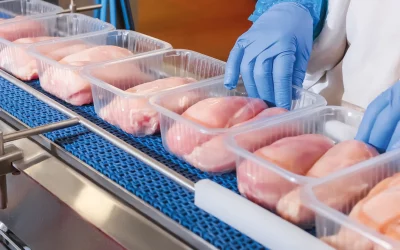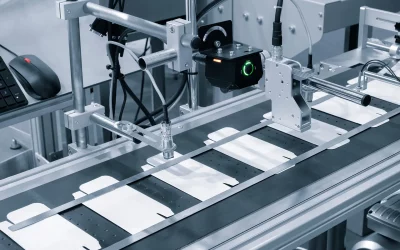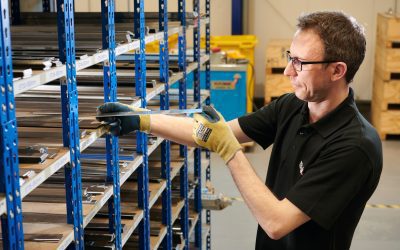Regardless of the steel grade that you choose, it must offer the following qualities:
Precision – Blades whether for processing or packaging blades must be able to deliver precision. On fast-moving production lines, there is no room for error or inaccurate cutting.
Material – The steel quality used to make the blade must be both strong and hardwearing and able to withstand corrosion, particularly if the blade is coming into contact with food products.
Maintenance – Steel blades should be easy to clean and maintain to ensure compliance with health, safety and hygiene regulations.
Custom Made – Blades should be a good fit for your processing or packaging operation. If the blades can be custom made this is even better.
Steel Grades
The grade of steel that you choose will not only affect the result that you get but also the quality of the cut when used with certain types of materials. There are particular steel grades that work better for some materials than others.
Steel used for rubber, paper, plastic, wood and textile manufacturing includes:
Alloy tool steel – Similar to standard steel, alloy tool steel features additional elements of alloy which provides greater resistance to wear and tear and improved toughness making it an excellent choice for use in demanding production or packaging environments.
Steel used for food packaging and food processing includes:
Hardened and tempered stainless steel – Featuring a high carbon content, this type of steel is hard, resistant to wear and tear and can withstand contact with food and water with a mild acid or alkaloid content. These blades are also suitable for use in packaging operations.
Steel used for cutting plastic, rubber, textiles, paper and metal includes:
High carbon chrome steel blades – This type of blade offers greater resistance to day to day use which is important in a production or packaging environment that is continuously in operation. High carbon chrome blades will also stay sharp for longer than some of the other steel blades and it will resist corrosion which prolongs its lifespan.
High speed steel blades – In certain manufacturing practices, the nature of the work will require the production or packaging line to be in constant use. In these situations, you need a blade that will work continuously without service disruption and one that can also withstand heat.
Tungsten carbide tipped – These blades are very strong and have the capacity to easily handle significant loads. They are sharp, durable and long-lasting, offering precision cuts and reliability. The main body of the blade is made from standard steel, but the edges feature small areas of carbide which have been brazed onto the blade.
Carbide blades – A high-quality carbide blade will retain its edge for between ten and twenty times longer than average tool steel which is a significantly longer period of time, maximising their working life. When it comes to long production runs, these blades would be ideal, particularly where machine downtime would have a detrimental impact on operations.
Stainless steel – This type of blade will resist corrosion which is important for production and packaging. This property is achieved through the addition of chromium.
420 – This steel grade will resist stains, but it is quite a soft material, and it won’t offer the longevity that you may need. It will lose its edge quite quickly meaning that frequent changes will be required. 420 stainless steel has a higher carbon content, and it’s hardness can be increased through heat treatment. This grade of steel is commonly used in the vertical form fill and seal operations or in packaging where blades require regular replacement.
440B – A steel grade made from high carbon stainless steel. It is hardened to a greater degree in comparison with 420 which means that it offers more strength and resistance to everyday use.
440C – This grade of steel is stronger still because of its higher carbon content. It offers a high level of hardness but is slightly less resistant to corrosion than 440B steel grade. It does, however, hold its sharp edge much better and is able to resist stains much more effectively.
The steel grade that you choose will very much depend on the industry in which you operate. In the vertical form fill and seal industry, for example, 420 and 440 steel grades are the best options depending on the build of the machine. These types of blades are also suitable for processing fish and white meat due to their higher chromium content there is a lower chance of the blade collecting rust particles where the blade is in regular contact with moist food products.
Steel grades are important and it’s essential that you choose the right one for your processing or packaging operation.
Speak to MRMK about choosing the right blades today
For the latest food industry trends and machine blade developments, read the MRMK News and Insights hub…
Packaging Sustainability Trends for the Food Industry | Food Production Trends You Need to Know in 2022 | Choosing the Right Cutting Tools for Your Food Processing Operations


 +44 (0) 1909 519815
+44 (0) 1909 519815 


